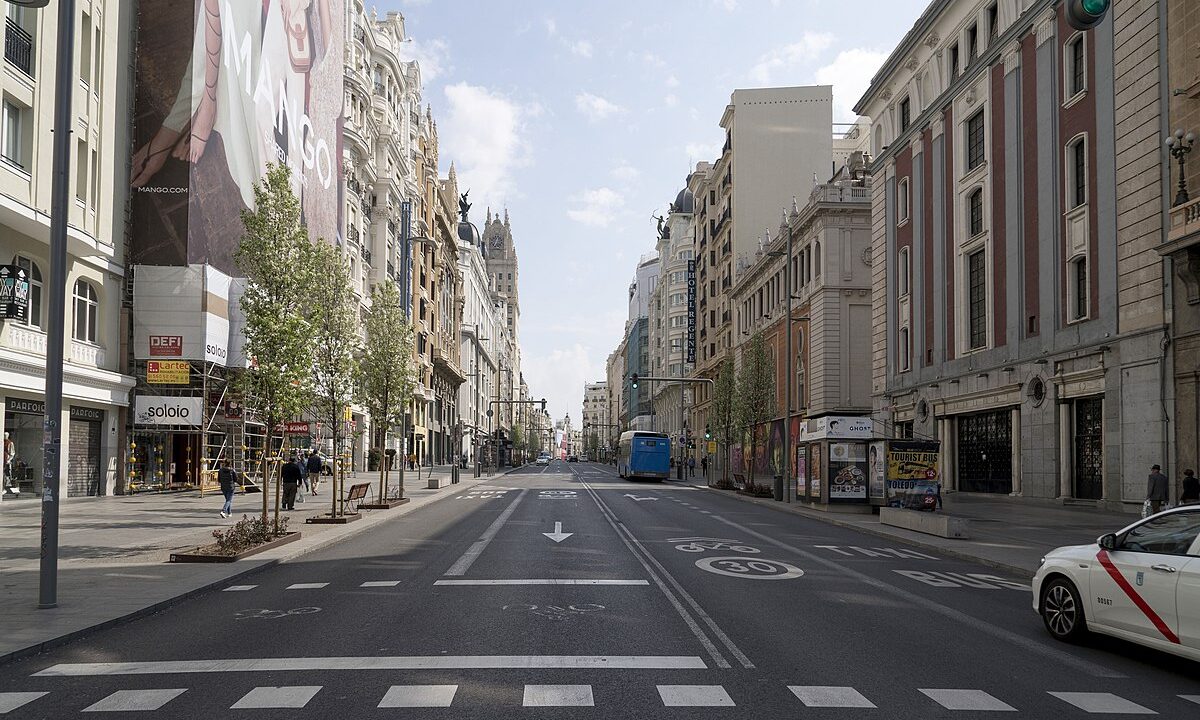
Quarantine will end sooner or later. However, we still do not know when or how that will happen. Over the weekend, Spanish Prime Minister Pedro Sanchez announced that the country’s state of emergency will be extended for another two weeks, until April 26. However, it will not end there. Some relaxations of the regime will be gradually introduced.
A few more will be introduced.
As of now, April 12 the toughest period of the state of emergency will end. On Monday, April 13, secondary industries such as construction and factories will resume operations. They have been suspended since March 30.
They have been suspended since March 30.
Discretion, medical regulations, respect for rights and freedoms, and preparedness for all scenarios. These are the principles the government is using to plan the “next phase” of quarantine. Little is known about their strategy and plans. However, epidemiologists can already tell roughly what that path will be. What they do know is that the return to “normal” life will be a trial-and-error approach.
The opinion of a professor of public health at University of Pompeu Fabra, Fernando Benavides on the subject. “In order to return to ‘normal’ life, the degree of immunity of the population is important. And, therefore, the availability of studies and tests that determine it. It is important for health professionals to know what percentage of the population is immune. These are the tens of thousands of people who have had the disease and who, even without symptoms, have developed antibodies. But no one knows yet whether 30, 40 or 50% of the population has been infected. It depends on whether there is herd immunity in this situation – the one that protects virtually the entire population – it is necessary that 70% of the population be immunized (after transmission of the virus).”
“I like the government’s idea of mass testing and isolating people without symptoms, of which there are many. Until that is done, we will have to avoid group activities other than those that are necessary. We won’t be able to go to a restaurant or university, a disco or a party. Even if we don’t like the word, all activities will have to be banned,” says Benavides.
But before returning to daily life, the health sector must be “restored,” says epidemiologist Ildefonso Hernandez, a spokesman for the Spanish society SESPAS. “Protect staff, control patient flows and ensure the replacement of professionals. This step precedes a return to a certain norm,” says Hernández. “Along with this, some restrictive measures will also have to be relaxed.” In his opinion, the first thing we will be able to do is to get out walking with children, perhaps even before the beginning of May.”
Hernandez says the first thing we will be able to do is to get out walking with children, perhaps even before the beginning of May.
Children First
It’s hard to imagine that children won’t go outside until May, given how long they’ve already been in their homes. Experts believe that in a few days children will be able to walk with their parents for a certain amount of time, just as adults will be able to do it alone “even if they don’t have children or dogs.”
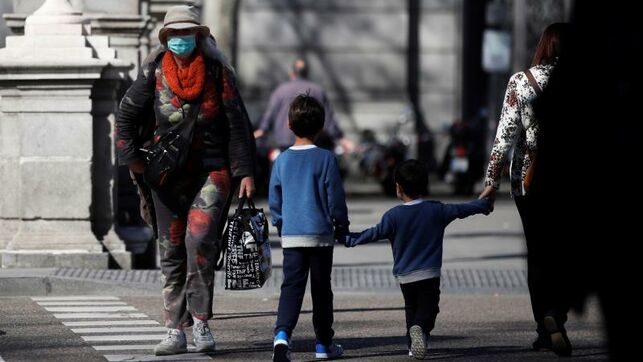
The two epidemiologists agree that this could be one of the first measures to relax the measures taken in Spain, as it is already allowed in Italy or even France and the UK. “If done properly, it shouldn’t be dangerous for society. Doing sports alone is no more dangerous than going to the supermarket. If the number of infections suddenly increases, it’s because we’re doing it wrong. It is our responsibility that determines when we are allowed to go out.”
And it is our responsibility to make sure that we are allowed to go out.
We can say goodbye to classes at schools and universities
The return to classrooms is best not talked about. It doesn’t seem like a measure that would be appropriate, given that the state of emergency will last at least until the end of April. The University Minister has already canceled face-to-face classes. “The paradox is that children, while not at risk, are carriers and can put people around them at risk,” Hernandez explains.
Hernandez.
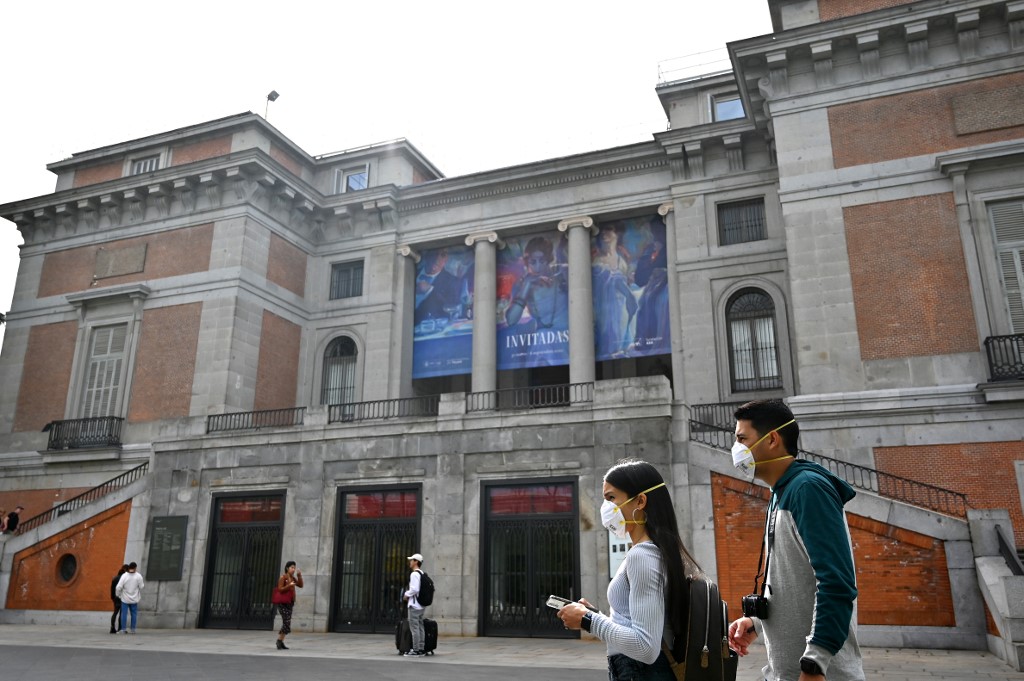
When an epidemiologist thinks about kids returning to classrooms after the summer – “if we come back” – he sees the following picture in his mind. Students and teachers wearing masks and waiting in line after class to wash their hands. It is likely that this image, which we have seen before in Japan or Korea, will become common in Europe as well.
However, it is not the only image we have seen before in Japan or Korea.
So, is it necessary to wear masks?”
Experts cannot reach a consensus in Spain or elsewhere. In Asia, the population was practically forced to wear masks almost from the start of the epidemic. However, WHO has long warned that this is probably not the best option. Since the mask gives people a false sense of security. And also, it could cause a shortage of protective equipment among medics, when they, must protect, first and foremost, themselves.
This Monday, the Minister of Health, Salvador Illa confirmed that the widespread use of medical masks in Spain will not be recommended unless there is a sufficient supply. Hence, the problem lies in the availability of the product itself. “We cannot take these measures if we cannot guarantee the supply of the population. The priority is to provide protective equipment, above all for the health sector, for a long period of time. I’m not talking about the next two weeks, but at least until September,” Hernández explains.
“In any case, the presence of masks is not a key factor to allow the relaxation of restrictive measures,” he says. “I don’t think it’s necessary for a child to go outside wearing a mask, on the basis that they’ve been at home for a long time and it’s logical that they’re not infected, although it would depend on logistical possibilities.”
“
Fernando Benavides, on the contrary, is convinced that masks will enter our daily lives once things calm down. “We are in a completely new situation and we must exercise a certain caution. We can’t afford new mistakes,” he argues.
And we can’t afford to make new mistakes.
End of self-isolation: by neighborhood and population group
The higher the population density, the greater the contagion. Consequently, the least populated areas have a good chance of ending the quarantine much earlier. The population of Spain varies quite a bit from area to area. The first steps to lift the stringent measures should be taken in places where the situation is well controlled, even in the case of a “mistake”. Haen province in China and Madrid are not the same.
And above all, we need to warn the elderly, who are the most affected. Probably the people at risk, should stay on self-isolation for longer. All this will be done on the basis of recommendations from medics and the government.
All of this will be done on the basis of recommendations from medics and the government.
Should we expect a new wave of infection after the quarantine ends?”
“This is something we want to avoid,” says Ildefonso Hernandez. “It’s normal for some cases of contamination, but a strong surge again should not be,” he says. “We have to gradually remove restrictions to see how the whole mechanism works. We need to track new cases closely (identify them, monitor them, trace contacts, isolate those infected) to avoid the return of a situation of uncontrolled transmission. If these measures are done correctly, other restrictions can be lifted,” he says.
And if the renewed increase in the number of infected people is not controlled, will the quarantine return? Yes, that could happen. “For example, soccer stadiums will start to open, and then they will realize it was a mistake. In that case, it will be necessary to go back to self-isolation,”
Benavides explains.
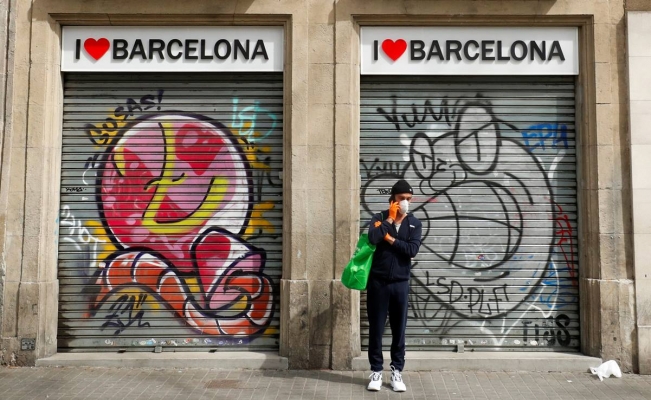
Are “recommendations” alone enough?
If people follow them, there should be no danger, epidemiologists emphasize. The problem is that sometimes, when the government does not force or prohibit, but only recommends certain measures, the population does not always qualitativelycomply with the instructions. Due to this, the mentality of people has changed a lot in these three weeks.
At the same time, the government has not been able to take action.
Previously, when the authorities announced that an event was canceled, people were outraged. Now they are the ones who don’t want to endanger themselves or others. Three weeks ago, no one knew what we were up against. No one expected such a high lethality rate or such a high degree of contagiousness, not even scientists.
No one expected such a high rate of lethality or such a high degree of contagion.
What is happening to the healthcare system right now?”
According to the latest figures, there are at least 20,000 health workers in Spain infected with the coronavirus. This is a very large number. However, there are future benefits to be gained from it. After all, health workers will already be immunized against it. In fact, the health care system will be reorganized based on it.
The idea is to make health care workers immune. And based on that, organize working groups. Those who deal with people who are at risk will preferably be workers who have already carried the virus. he notes. It’s likely that many more people than we know have carried the virus. The more hospitals that have up to 70% of their workers infected, the better for the rapid recovery of the health care system.
The more hospitals that have up to 70% of their workers infected, the better for the rapid recovery of the health care system.
It will be necessary within the healthcare organization to create “Covid and non-Covid zones,” to avoid in-person doctor visits whenever possible, to prioritize online appointments, to separate people based on whether or not they are found to have symptoms of coronavirus, etc. The goal is to ensure that people with suspected acute respiratory illness do not share hospital rooms with patients who see a doctor for other problems, mainly in the emergency department.
The goal is to ensure that people with suspected acute respiratory illness do not share hospital rooms with patients who see a doctor for other problems, mainly in the emergency department.
Which countries does Spain look up to?”
Spain is looking at everyone. The government is processing all proposals and options. There is no “model” country, but there are “model” measures that need to be adapted to our territory, our culture and our individuality. Just this Tuesday, the quarantine in Wuhan, the first hotbed of the pandemic, was lifted two months after the city was completely shut down and the population completely isolated. People were buying food online and were unable to leave their neighborhoods. There are measures that are applied in Taiwan and Hong Kong that could not be applied here. Because the legal laws and people’s access to technology are different.
in the summer. Obviously this is selfish to others, and will depend on the type of trip. “There will always be a few fearless people who want to take advantage of the situation, but our caution will tell us not to get on trains or airplanes,” Benavides said. There will be no cruises this summer, according to the epidemiologist. Instead, “we’re going to venture into domestic tourism” by car, he suggests. At the end of the summer, the epidemiologist says, “we’re going to explore domestic tourismYou can forget about traveling
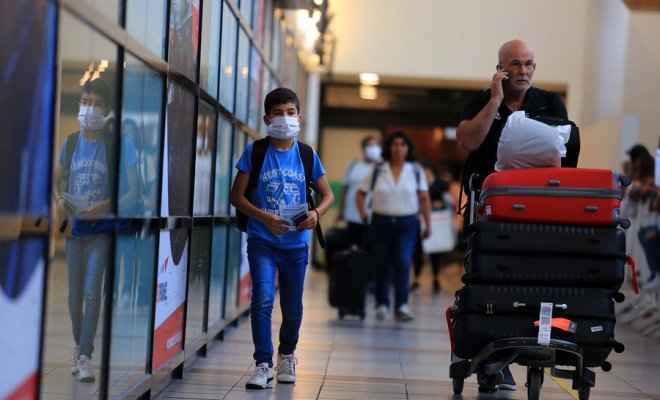
Summer can bring good news, though. “If it’s true that the heat and ultraviolet rays help reduce the weakening of the virus, that would be a very good thing. Perhaps at 35 or 40 degrees, it would be harder for the virus to survive on the surface and transmission in the community would be greatly reduced,” Hernandez says. Thus, “in May, depending on the weather, we’ll be able to have a rough idea of how the situation is going to develop further.”
Hernandez said.

